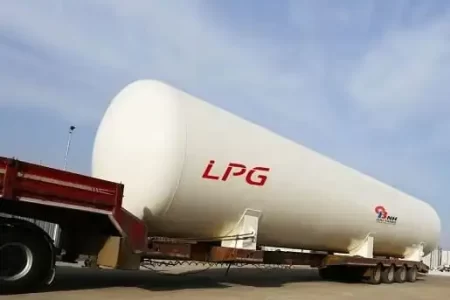Ghana is currently grappling with ongoing shortages of Liquefied Petroleum Gas (LPG) across the country, with many stations running out of stock by late September 2024. These shortages, which have led to long queues at gas stations in Accra and other regions, have been primarily attributed to supply delays from Bulk Oil Distributors (BDCs).
According to the LPG Marketers Association of Ghana, about 60-70% of gas stations had exhausted their LPG supplies, leaving the few with stock struggling to meet consumer demand.
While logistical issues and supply delays are causing immediate concerns, the root of the problem lies in the lack of adequate investment in LPG storage infrastructure, according to Abass Ibrahim Tasunti, Director of Regulation and Planning at the National Petroleum Authority (NPA). Tasunti pointed out that Ghana’s LPG storage capacity is insufficient to meet the growing demand, a shortfall that has led to persistent supply challenges across the nation.
“We don’t have adequate storage tanks for LPG,” Tasunti emphasized, explaining that while petrol and diesel can be stored for up to seven weeks, LPG storage typically lasts only two to three weeks. This limited capacity stems from the country’s insufficient investment in storage infrastructure over the years, creating vulnerabilities in the supply chain.
To mitigate these challenges, the NPA has implemented programs such as the Tender Program, which coordinates the timely importation of LPG to ensure availability. Despite these efforts, the core issue remains unresolved.
According to Tasunti, private sector involvement has been instrumental in expanding LPG storage capacity, particularly with the construction of new terminals in Tema. “In Tema, for example, two new storage terminals came on board recently, and more companies are expressing interest in building LPG terminals,” he explained.
However, he emphasized that more investment is needed to fully address the storage shortfalls and meet the increasing demand for LPG.
Recent disruptions in the LPG supply have also been linked to delays in the discharge process, which impacted product availability. Tasunti noted that these supply interruptions often stem from the complexities involved in verifying and signing off on discharged quantities, further highlighting the inadequacies of current storage infrastructure.
Historically, Ghana relied heavily on the Tema Oil Refinery (TOR) for LPG storage. But today, the country operates five LPG terminals in the Tema area. While this has improved the supply chain, Tasunti stressed that additional storage facilities are necessary to keep pace with rising demand.
In addition to the storage and importation challenges, local LPG production at the Atuabo Gas Processing Plant has played a crucial role in maintaining supply. Although the plant recently experienced operational issues that temporarily disrupted production, these challenges have since been resolved, allowing the facility to resume normal operations.
Despite the various initiatives in place, the NPA continues to monitor LPG stocks closely and is working to ensure a stable and continuous supply of the product. However, Tasunti reiterated that further investment in storage infrastructure is critical for overcoming the supply challenges and ensuring Ghana’s energy security in the long term.
Source:thehighstreetjournal.com

